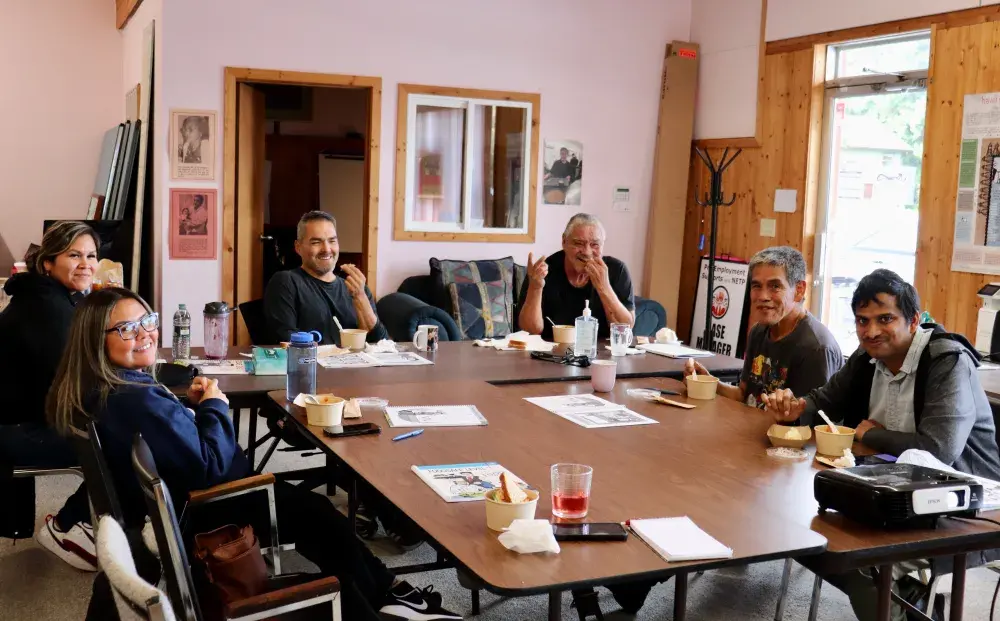It’s never been a better time for job seekers looking for work in the Alberni Valley, according to Bill Brown, the manager of employer services at Port Alberni’s WorkBC Centre.
On the Alberni Valley Employment Centre website, Brown says they are posting about twice the number of jobs than they were pre-pandemic: an average of 563 a month this year compared to 228 a month in 2019. These numbers include Port Alberni and west coast communities in Clayoquot Sound.
“Despite the interruption of the pandemic, this region seems to be experiencing more significant growth than in recent decades. The high paying long-term jobs in the forest industry are disappearing, but we now have a more diverse economy than 10 or 20 years ago,” said Brown.
“I’ve never seen so much construction as there is now and I’ve lived here since 1978,” he continued. “Real estate and construction are strong, new homes and apartments are being built, and new arrivals are often younger families who are bringing businesses or jobs with them.”
Regional First Nations are developing new business initiatives at a rapid rate, Brown points out. From Anacla to Ahousaht, First Nations communities have, on average, a younger population to train and fill those opportunities - plus a growing population as well.
Brown shared the new Oomiiqsu (Aboriginal Mother Centre) housing development, for example, recently posted 22 positions for Tenant Support Workers.
In 2021, there were 4,255 Indigenous people in Port Alberni, making up 16.8 per cent of the population. B.C.’s proportion of Indigenous people is 5.9 per cent, and in Canada it is 5.0 per cent, according to Statistics Canada’s latest census.
In general, the Indigenous population in Port Alberni is younger than the non-Indigenous population, with the 2021 census showing the average age of the Aboriginal population in Port Alberni at 33.9 years, compared with 48.9 years for the non-Indigenous population.
Additionally, Indigenous children aged 14 and under comprise 26.4 per cent of the area’s total Aboriginal population, while non-Indigenous children aged 14 and under accounted for 11.7 per cent of the non-Indigenous population, according to the 2021 census.
“Those kids are already 17 and entering the workforce now,” Brown said. “It’s been my feeling for a while that employers are really going to have to step up and start employing Indigenous people like they didn’t use to.”
For First Nations who are navigating a new career path or finding their way in the workforce, the Nuu-chah-nulth Employment and Training Program (NETP) supports Nuu-chah-nulth communities in their employment, education and training goals.
From the popular Drivers L Training offered throughout the year, to unique training opportunities like the Office Administration Essentials course coming to Ty-Histanis or Small Vessel Operator Proficiency in Ditidaht, NETP partners with each Nuu-chah-nulth region to ensure needs are met.
In the Northern Region, NETP is working with Ehattesaht First Nation to bring a chainsaw safety course to the remote community 70-kilometres west of Gold River.
“We don’t just decide on what it is we provide, we ensure there is effective and efficient equity behind what we do in knowing the voices of our members matter and (acknowledging) that they know their communities best,” said NETP Manager Melanie Cranmer.
Health care and social assistance (2,070 people) were the biggest employer in Port Alberni at the time of the 2021 census, followed by retail trade (1,500) and construction (1,165), according to Brown.
The two largest employers in Port Alberni were Island Health and the school district, Brown said.
“In our region, we have a larger than average per cent of the population who have aged out of the workforce compared to the B.C. average, which means a smaller percentage in the workforce,” Brown went on to note. “That tightens the labour market here a little more. We don’t have the immigration levels that the Lower Mainland has.”
Cranmer explained that NETP works one-on-one with clients and helps cover any barriers clients might face.
“We work towards an action plan and that action plan provides guidance in order to meet their goal,” said Cranmer. “If they want to go job hunting and don’t have access to the buses transit system, we will provide bus tickets. When they are participating in our program we always make sure there is a meal share.”
“Our team is also continuously doing job development in order to help support any nation,” Cranmer added. “We are also mindful of what our clients are experiencing on a day-to-day basis and how that impacts their life. We walk with gentle feet to ensure we are being very understanding to the surrounding and the impacts of communities.”
For individuals interested in taking a specific course or training, Cranmer recommends connecting with a case manager by calling the main NETP office: (250) 723-1331.
NETP also assists with Indigenous retention within organizations.

